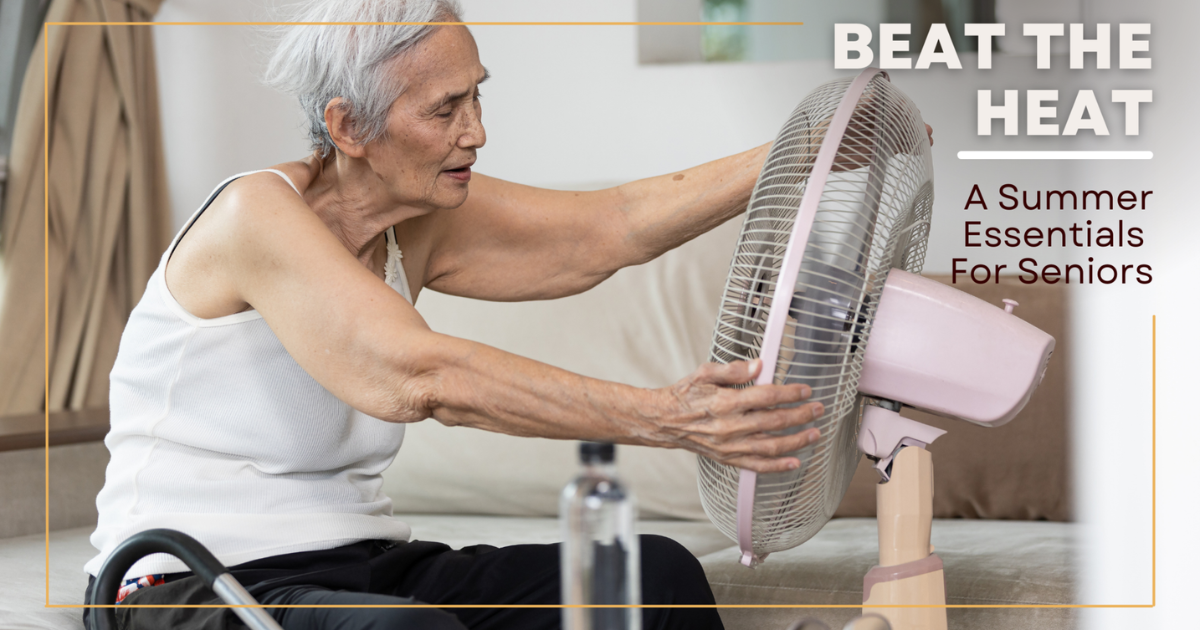Staying Hydrated: A Summer Essential for Seniors
As the temperature rises and summer heat settles in, proper hydration becomes crucial for everyone especially for our senior population. While many of us look forward to sunny days, the warmer months can pose significant health risks for older adults. This happen if they don’t maintain enough fluid intake. Let’s dive into why hydration is so important for seniors. And how they can stay safely refreshed during the hot days of summer.
Why Seniors Are at Higher Risk
As we age, our bodies undergo various changes that affect how we process and retain water. Older adults often experience a less sense of thirst that makes them likely to drink water regularly. Next is our kidney becoming less efficient at conserving water that leads to increased fluid loss. With that the proportion of water in our bodies decreases making dehydration occur more quickly. Another factor is adverse effects of certain medications that may act as diuretics or increase fluid loss. That’s why we need a proper supervision of medication. And lastly, when a senior has certain health issues such as diabetes and heart disease this affects the hydration levels.
The Dangers of Dehydration
When seniors don’t get enough fluids, they face several health risks. This can lead to a range of serious health issues, including heat exhaustion, heat stroke, urinary tract infections, kidney problems, seizures, low blood pressure, rapid heart rate, confusion, and disorientation.
In severe cases, dehydration can even be life-threatening. That’s why it’s essential for seniors, their caregivers, and family members to be proactive about hydration.
Strategies for Staying Hydrated
Fortunately, there are many effective ways for seniors to maintain proper hydration. Such as using alarms or smartphone apps to promote regular water intake throughout the day. Keeping a water bottle or a glass within easy reach to make it more accessible at any time. We ca also add natural flavors like lemon, cucumber or berries to make it more enjoyable and healthy. Also don’t forget to eat water-rich fruits and vegetables like watermelon, cucumbers, and tomatoes. Limit dehydrating beverages like alcohol and caffeinated, which can contribute to fluid loss.
We must know how to monitor the urine color. Pale yellow indicates good hydration, while dark yellow or amber suggests more fluids are needed. With that information we can create a routine for drinking water. Like drinking a glass of water with meals and medication to ensure adequate intake.
How Much is Enough?
A general guideline is for seniors to consume at least 6-8 glasses (8 ounces each) of water per day. However, this may need to be increased during hot weather or physical activity. It’s always best to consult with a healthcare provider for personalized recommendations.
Signs of Dehydration to Watch For
We must know the warning signs of dehydration. First is dry mouth and lips, sunken eyes, decreased urination or dark urine, dizziness or lightheadedness, rapid breathing and heartbeat, confusion or irritability, fatigue, and dry or less elastic skin.
If these symptoms appear, it’s crucial to start rehydrating immediately and seek medical attention if the condition doesn’t improve quickly.
As the summer sun beats down, let’s remember that staying hydrated is more than just quenching thirst. It’s a vital aspect of health and wellbeing for seniors. By understanding the risks, implementing smart hydration strategies, and looking out for one another, we can help our older loved ones enjoy a safe and refreshing summer season. So raise a glass (of water, of course!) to good health and happy hydration!

